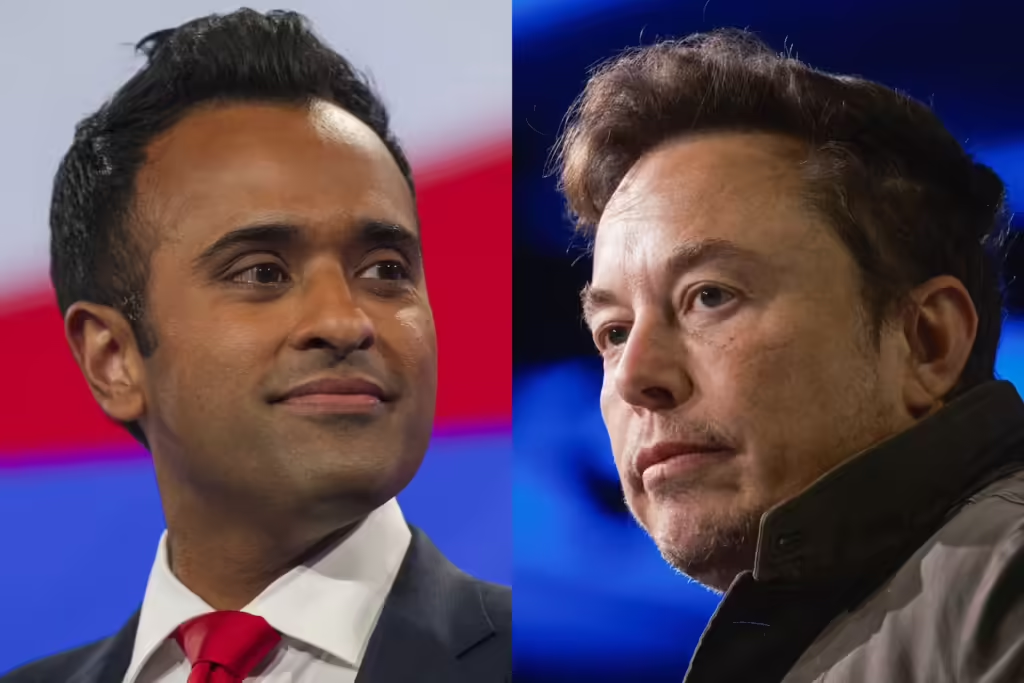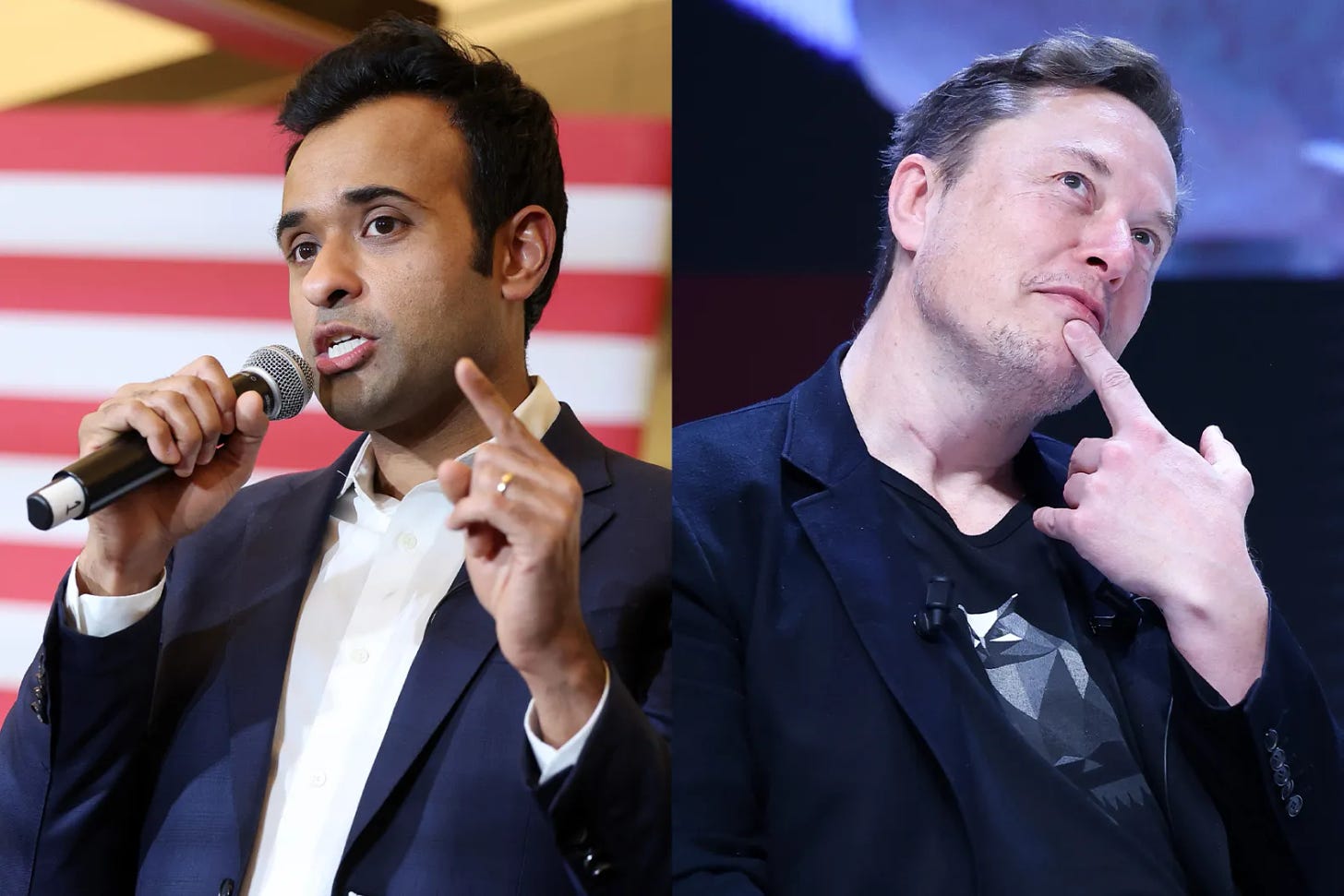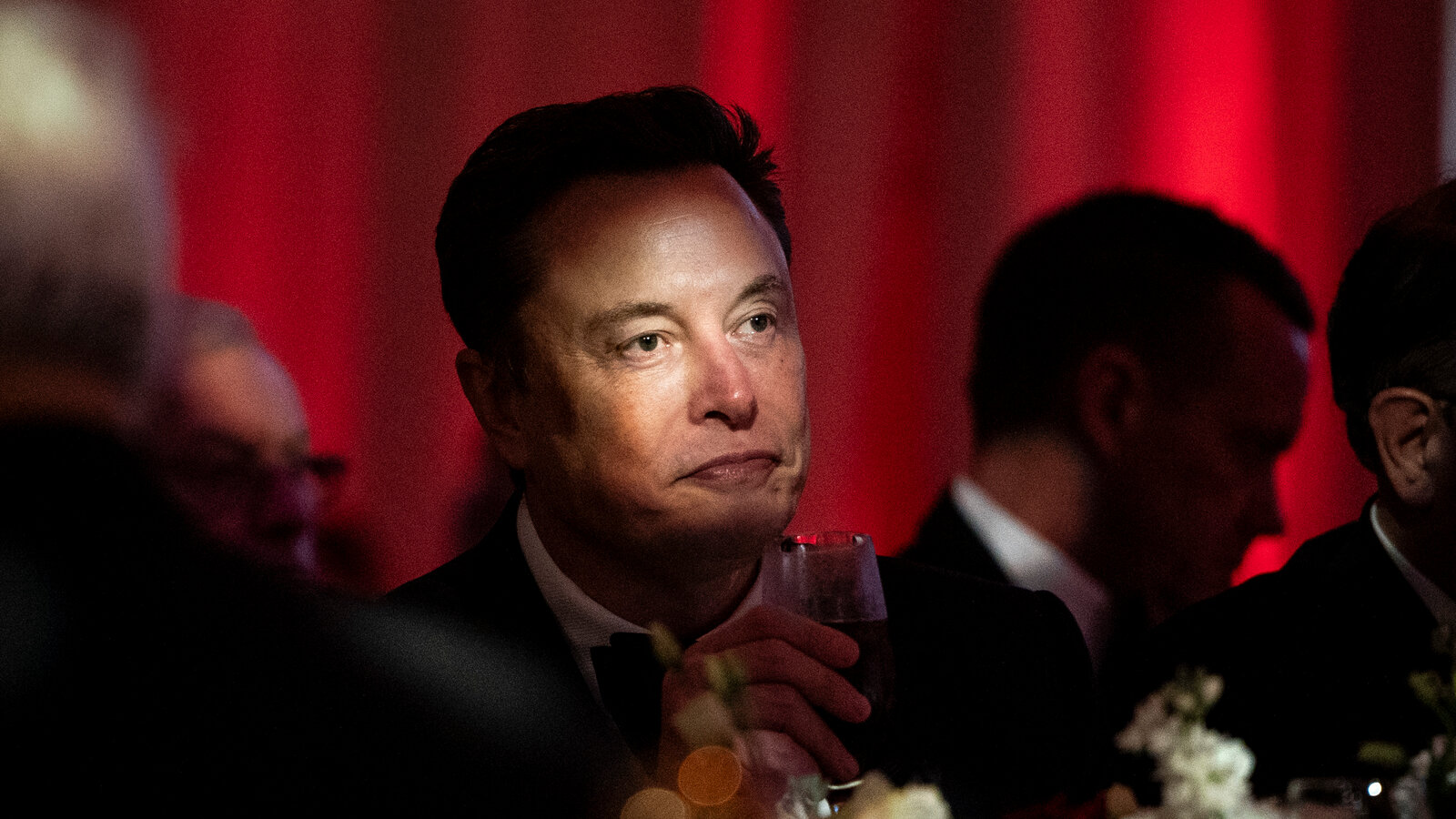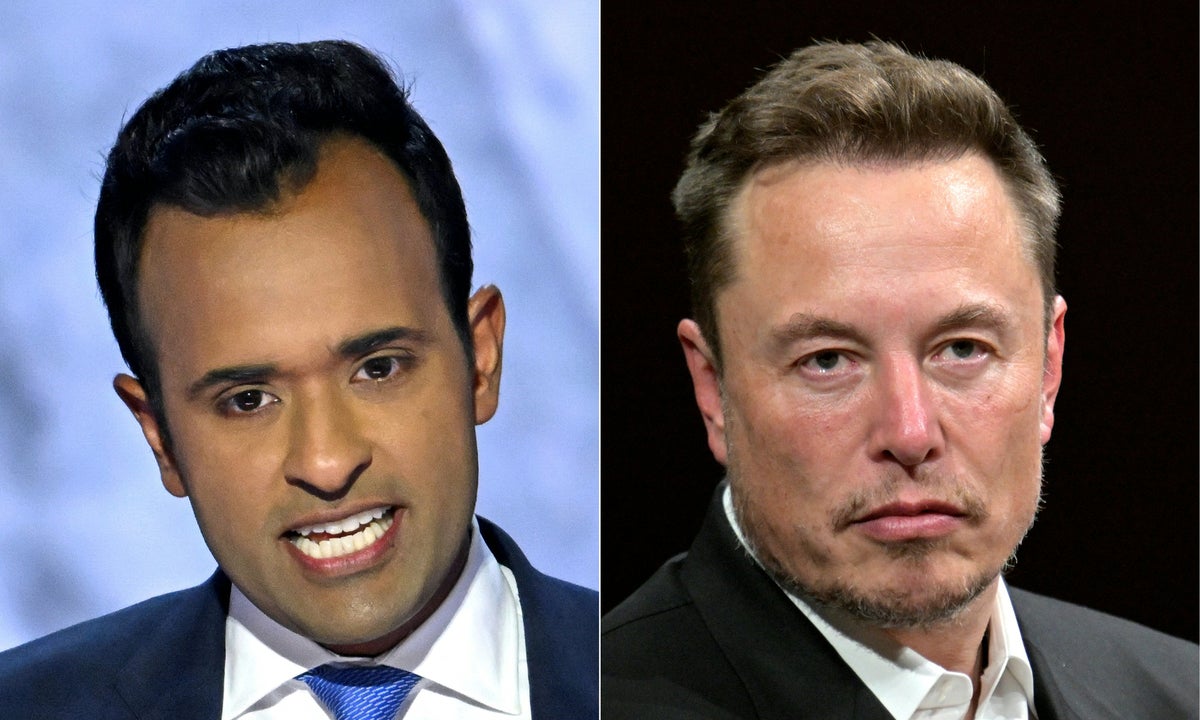
Elon Musk and Vivek Ramaswamy, two of the most audacious figures in technology and politics, have recently been appointed by President-elect Donald Trump to head an advisory panel tasked with radically downsizing the federal government. This initiative, whimsically named the “Department of Government Efficiency” or DOGE, is no longer just a subject of internet memes but a real-world project with significant implications.

From Silicon Valley to Washington: Shaping the DOGE
Over the past week, Musk and Ramaswamy have been actively engaged in Washington and at Trump’s Mar-a-Lago resort, searching for the right team to bring their vision to life. Their agenda is clear: implement “drastic” cuts across the federal government, a vision they believe will streamline operations and reduce inefficiencies.
The duo has been consulting with top legal specialists, seasoned Washington insiders, and leading tech figures to staff this ambitious project. Among those consulted are Russell Vought, Trump’s choice to lead the White House Budget Office, and various influential figures from Musk’s network including Antonio Gracias, Steve Davis, Joe Lonsdale, Marc Andreessen, Bill Ackman, and Travis Kalanick.
The Legal and Technical Hurdles Ahead
Despite the excitement surrounding their appointments, the road ahead is fraught with challenges. Legal and practical hurdles loom large, as pointed out by Richard J. Pierce, a professor specializing in administrative law. Musk and Ramaswamy plan to cut “thousands” of government regulations and reduce federal spending by hundreds of billions of dollars—goals that are ambitious, if not overly optimistic.

Their approach, which could bypass Congress to some extent, will undoubtedly be contested in courts. The potential for such significant changes has stirred a mix of enthusiasm and skepticism. Supporters see this as a long-overdue shake-up, while critics warn of chaos and legal entanglements that could harm businesses relying on federal consistency.
Congressional and Public Reactions
The response in Congress has been mixed, with figures like Rep. Chip Roy (R-Texas) expressing strong support, advocating alongside Musk and Ramaswamy for substantial federal spending cuts. On the other hand, key budget leaders in Congress have hinted at a more collaborative approach, suggesting that while the DOGE might initiate changes, Congress will play a crucial role in shaping and guiding these reforms.

Musk and Ramaswamy’s Broader Impact
Beyond the immediate legislative and bureaucratic impacts, the DOGE initiative reflects a broader trend of prominent tech leaders stepping into political and governmental roles, bringing with them a ‘move fast and break things’ ethos that could dramatically alter the landscape of federal governance.
As this initiative unfolds, Musk and Ramaswamy are not only challenging the status quo but also redefining what it means to govern efficiently. Whether their vision will lead to a more streamlined government or mire the administration in legal battles remains to be seen. However, one thing is clear: they have the attention of both supporters and detractors, and the outcome of their efforts could have lasting effects on how government operates in the United States.
In the coming days, more details about the DOGE’s specific strategies and proposed cuts are expected to emerge, clarifying how these tech titans plan to reshape the federal landscape. Whether their gamble pays off or not, Musk and Ramaswamy are undeniably setting the stage for a fascinating chapter in the intersection of technology, politics, and government reform.
